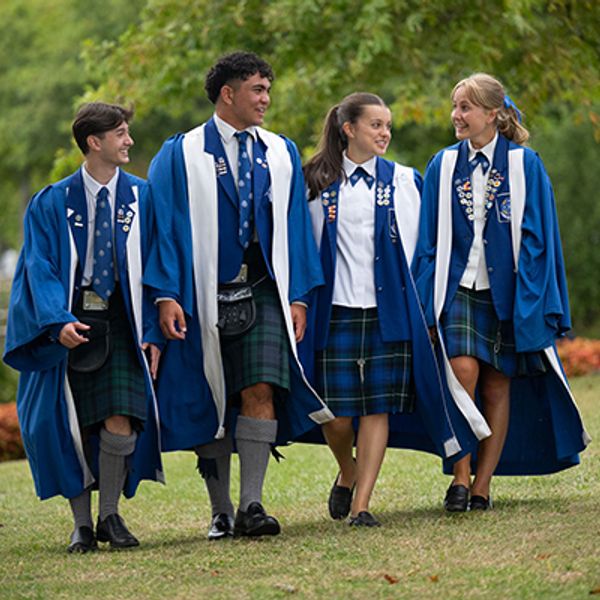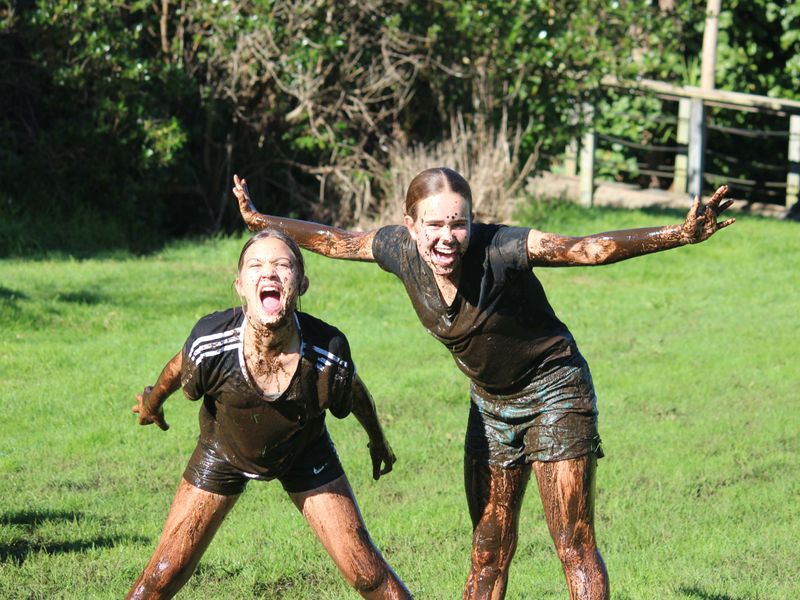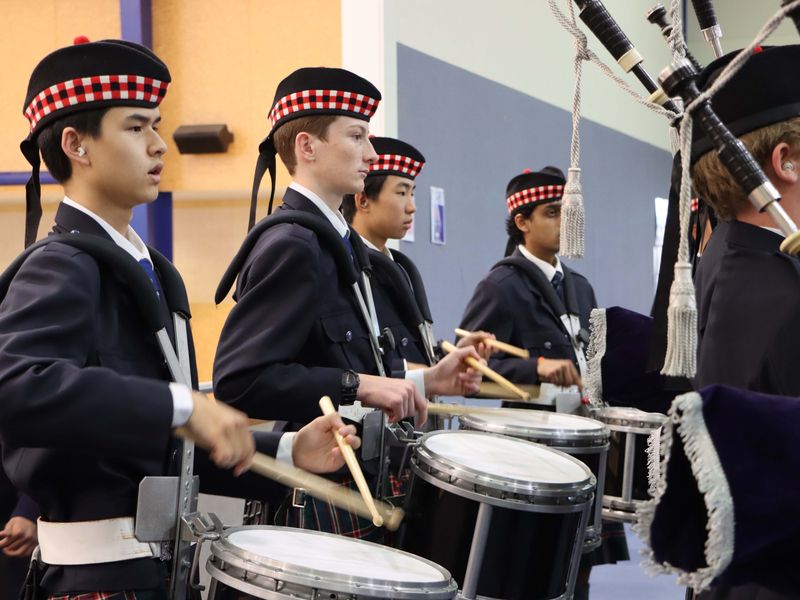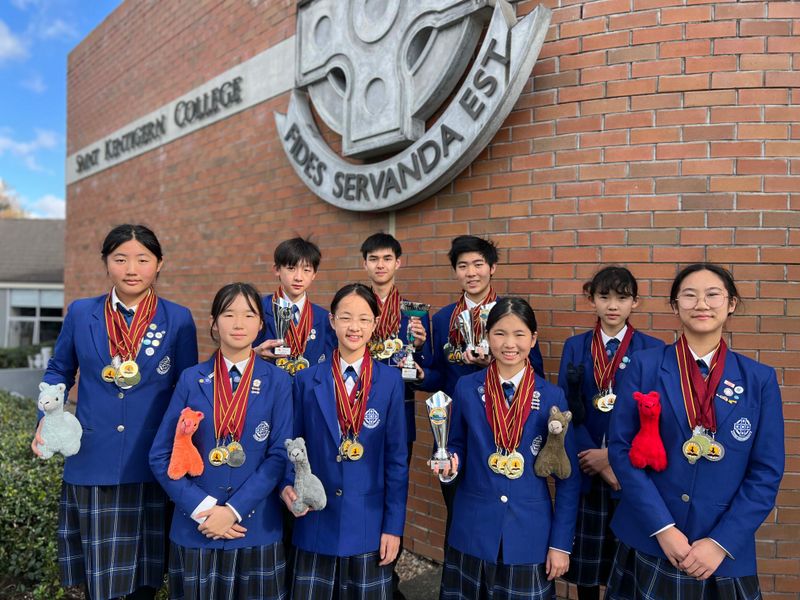
50 Years of Field Centre!
50 Years of Field Centre!
December 03, 2019 at 9:28 AM
The 2019 trip ‘down the mountain’ marked the 50th anniversary since Field Centre first took place in 1970. Whilst much has changed in the intervening 50 years, much has also stayed the same. The outcomes of providing our students opportunities to improve leadership and communication skills, build resilience, develop lasting bonds with their peers and extend their comfort zones through adventurous, challenging activities – while having plenty of fun - have not changed!
50 years on, and as Field Centre approaches, our students still voice trepidation about what lies ahead; questioning whether they have the stamina to face the physical challenges of tramping, rafting and camping in difficult terrain; challenges that include the Tongariro Crossing and a three day tramp, yet 50 years on, they return exhilarated by the experience!
50 years of experience has paid dividends when it comes to the organisation of Field Centre – for it is a mammoth task! The logistics involved in getting the whole of Year 10 to the National Park is huge! As the buses pull in to College to load 330 students, 63 staff and their 393 backpacks, daypacks, sleeping bags, tramping boots, wet weather gear, polypropylene undies, fleece tops, beanies, a change of socks and the all-important 393 toothbrushes, you begin to get an idea of the logistics involved.
Prior planning includes sorting the students into 12 Lodge groupings, along with staff who undertake the activities with them, and cooks who stay in the Lodges to prepare the meals. Another group of mountain ‘professionals’ are also engaged. That takes the total to over 400 people needing to be organised into activities, and requiring three meals, snacks and drinks a day, whether in the Lodges or out on the mountain!
A well-oiled team swings into action to co-ordinate food supplies. The figures are definitely noteworthy! It’s not until you see the shopping list that you start to fully appreciate the true scale of the undertaking: 4,666 loaves of bread, wraps and assorted buns, 252 litres of fresh milk to get the week started, backed up with 57kg (yes kilos!) of milk powder and 33kgs of Milo! 265 boxes of cereal, with a further 40kg of rolled oats to set them up for a day’s activity. 84kg of flour, 104 kg of sugar, 50kg of jam, 20 litres of honey, 27 jars of peanut butter and 431 packets of biscuits to ensure there’s something tasty on return. And 7kg of coffee for the staff!
The bulk is pre-purchased and driven to the mountain where it is offloaded in the central car park and then carried box by box up to the Lodges – the students’ first chore on arrival! The initial supplies are supplemented by daily deliveries from the local supermarket in Ohakune.
The equipment required for the overnight tramps is also another huge logistical undertaking. A tent is little use without its tent poles when you’re six hours hike from civilisation! Likewise, leaving your wet weather jacket back at the Lodge could spell disaster. Tents, sleeping bags, cooking equipment, food, water, spare clothing, first aid supplies, maps and, um…spades for’ essential business,’ all have to be distributed, checked, checked again and carried. That’s 105 tents with, 210 poles, 1890 tent pegs, 120 stoves and the, um, 14 spades to do the right thing!
By the time Field Centre comes to a close, the students will have chomped through a mountain of food to give them the energy needed for at least 60 km of walking each – that’s close to 25,000km collectively!
Back in the Lodges there are the 4300 metres of Glad Wrap, 1200 Snap Lock bags, 27 litres of washing up liquid, 140 Chux cloths, 28 cans of fly spray, 1400 disposable gloves, 2,592 toilet rolls and the 105 large rubbish bags to aid clean up at the end….
Whilst that can all be planned for, there is one thing that is impossible to plan for months out. Even days out it can be a bit of a ‘best guess,’ for we know weather reporting in New Zealand, like the weather itself, can be fickle. Our students are advised to be prepared for every eventuality – like the ‘sideways’ rain and sleet that greeted the first students on arrival! This made the unloading of gear and food to lodges just a wee bit challenging! The heavy rain and strong winds persisted for a couple of days requiring the programme to be juggled, but soon the poor weather and risk of hypothermia was replaced by brilliant sunshine and the need for sunscreen and constant rehydration as the activities got underway in earnest! Every single group was able to cross the snow-line to ascend the summit of Mt Ruapehu – and then experience the adrenalin-pumping sensation of sliding back down snow on polythene bags!
As each activity was ticked off, the students gained a growing sense of self and achievement. Field Centre is a unique opportunity to gain independence and explore personal strengths in an exciting, spectacular and challenging outdoor environment. It has been a cornerstone of College life for 50 years and never fails to be recalled as one of the highlights of a Saint Kentigern education!
FIELD CENTRE - EARLY BEGINNINGS
In this, the 50th year of Field Centre, it is fitting to look back to where College camps and the importance of outdoor activities first began.
Saint Kentigern fifth form students first attended an ‘outdoor training school’ at Hunua in 1958 held at the Presbyterian Bible Class site. Supervised by Mr Stan Mair, the boys were introduced to the unforgettable experience of being served heavily salt-laden porridge cooked over an open fire by Reverend Dr Adam MacFarlan dressed in a kilt and gum boots, whilst also learning the skill of keeping food warm in hay bales!

In those early days it was recognised that the benefits of camp were twofold. Whilst being introduced to new outdoor activities was the focus, the opportunity for boys and masters to get to know one another better in an informal setting was just as important.
In 1961, the camp moved to Mr Clive Cashmore’s property at Orere Point where it continued for several years with the boys’ sleeping under canvas. A further boost to outdoor education came in 1964 as tramping trips to the South Island were organised by Mr Ron Stone, where they tramped in some of the most beautiful scenery in the world in the Rees and Dart Valleys of the Southern Alps. Escalating costs curtailed the South Island trips but new ventures opened with track cutting sorties around Lake Waikaremoana and public service works by senior boys on Little Barrier. Both students and staff were taking an active interest in outdoor education and the Duke of Edinburgh Scheme in New Zealand, was first begun by our College.

It was in 1970 that a Saint Kentigern outdoor education ‘rite of passage’ was established. College staff met at Roberts House to discuss the possibility of extending the outdoor experience to involve all fourth form boys and at the end of that year, Field Centre at Tongariro National Park replaced the fifth form camps at Cashmore Valley. The tradition continues and it has long been recognised that this intensive outdoor experience, often under extreme conditions, challenges students to discover hidden personal resources.









